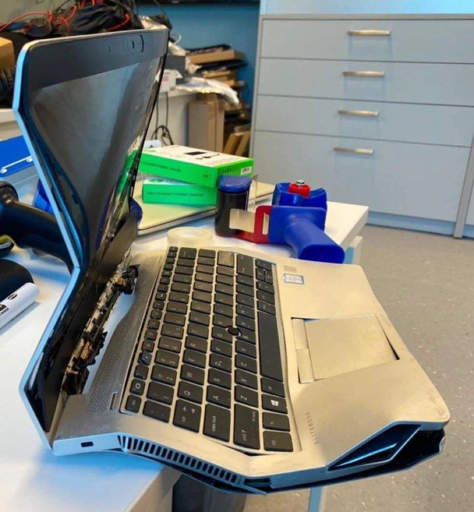
-
Can I route CAT5 through a toilet?
I promise you this is a legitimate question. I have been trying to find an easy path to route networking from my basement where the network gear is to the second floor of my house. Problem is I cannot find a clear route - except for one of the drains for the second floor toilets. It’s basically a straight stack directly upstairs.
How realistic is it to route the cable up through the plumping and then out of the toilet upstairs? Obviously I would not have the cable exit the bowl that would not make much sense but I think I could catch it the other end, and then route it upstairs. I would just need to drill an entry hole for the cable in the drain downstairs and then just push it up.
I could probably convince my wife we don’t need the spare bathroom upstairs so it’s not like the toilet will be used much or at least restrict it to non solids use to not cause issues.
How realistic is this? I don’t think a toilet flush would cause too much pressure on the entry hole downstairs, I’d seal it too with silicone or something. I’m really convinced this is doable.
-
How do I get SSL certified?
I see a lot of ppl talking about SSL certificates but I can't find any training material or test dates? thx
-
No NAT November
I need your guys help. I am looking to remove nat from out environment since it is November after all.
Can you make me a three step plan?
-
Need to update network drivers
The CEO’s nephew has been promoted to CTO because he installed FoxIT on a laptop. Now they’re wanting to embrace AI/ML and require all software to use it.
We’ve trained a model on IPv6 addresses. How do I push out self-signed certs for all workstations to accept the model as a driver to perform TCP/IP functions?
Can’t use IPv4 because “CAT5 isn’t backwards-compatible.”
-
I installed Arch in production
Help, I messed up the Pacman db and now a meeting with HR is inevitable
spoiler
/s obviously
-
What skills should I cultivate do learn to be a sysadmin? (Humanities major)
cross-posted from: https://lemmy.world/post/21919909 > Doing a PhD in humanities and enjoy it. I’ve recently really started to enjoy Linux, self hosting, and messing around with various lab stuff.
-
What do I select here?


I'm trying to build software from source. To do that I need g++. However, I can't get past this step (I keep hitting n)
-
Horsepower required for 10 Gbit router?
The title gave me a laugh
cross-posted from: https://lemmy.world/post/21745509 > My internet connection is getting upgraded to 10 Gbit next week. I’m going to start out with the rental router from the ISP, but my goal is to replace it with a home-built router since I host a bunch of stuff and want to separate my out home Wi-Fi, etc onto VLANs. I’m currently using the good old Ubiquiti USG4. I don’t need anything fancy like high-speed VPN tunnels (just enough to run SSH though), just routing IPv6 and IPv4 tunneling (MAP-E with a static IP) as the new connection is IPv6 native. > > After doing a bit of research the Lenovo ThinkCenter M720q has caught my eye. There are tons of them available locally and people online seem to have good luck using them for router duties. > > The one thing I have not figured out is what CPU option I should go for? There’s the Celeron G4900T (2 core), Core i3 8100T (4 core), and Core i5 (6 core). The former two are pretty close in price but the latter costs twice as much as anything else. > > Doing research I get really conflicting results, with half of people saying that just routing IP even 10 Gbit is a piece of cake for any decently modern CPU and others saying they experienced bottlenecks. > > I’ve also seen comments mentioning that the BSD-based routing platforms like pfSense are worse for performance than Linux-based ones like OpenWRT due to the lack of multi-threading in the former, I don’t know if this is true. > > Does anyone here have any experience routing 10 Gbit on commodity hardware and can share their experiences?





